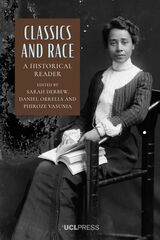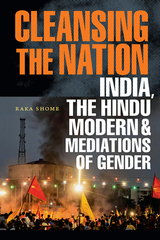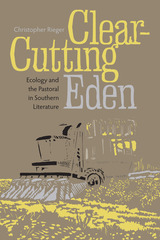4 books about Nie, Norman H.

The Changing American Voter
Enlarged Edition
Norman H. Nie, Sidney Verba, and John R. Petrocik
Harvard University Press, 1979
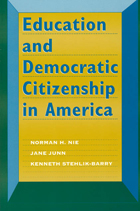
Education and Democratic Citizenship in America
Norman H. Nie, Jane Junn, and Kenneth Stehlik-Barry
University of Chicago Press, 1996
Formal education is crucial for creating enlightened and active citizens. The better educated are more engaged, more knowledgeable, and more politically tolerant. Despite a dramatic increase in education attainment over the last quarter century, political engagement has not risen at a commensurate level. How and why education affects citizenship in these ways has until now been a puzzle.
Norman H. Nie, Jane Junn, and Kenneth Stehlik-Barry provide answers by uncovering the causal relationship between education and democratic citizenship. They argue that citizenship encompasses both political engagement in pursuit of interests and commitment to democratic values that temper what citizens can do to win in politics. Education affects the two dimensions in distinct ways. Especially significant is the influence of education on political engagement through occupational prominence and position in social networks. Formal education orders the distribution of social position and connections and creates an uneven political playing field.
Norman H. Nie, Jane Junn, and Kenneth Stehlik-Barry provide answers by uncovering the causal relationship between education and democratic citizenship. They argue that citizenship encompasses both political engagement in pursuit of interests and commitment to democratic values that temper what citizens can do to win in politics. Education affects the two dimensions in distinct ways. Especially significant is the influence of education on political engagement through occupational prominence and position in social networks. Formal education orders the distribution of social position and connections and creates an uneven political playing field.
[more]
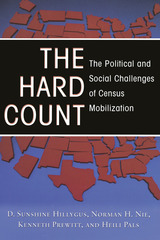
The Hard Count
The Political and Social Challenges of Census Mobilization
D. Sunshine Hillygus
Russell Sage Foundation, 2006
American democracy relies on an accurate census to fairly allocate political representation and billions of dollars in federal funds. Declining participation in previous censuses and a general waning of civic engagement in society raised the possibility that the 2000 count would miss many Americans—disproportionately ethnic and racial minorities—depriving them of their share of influence in American society and yielding an unfair distribution of federal resources. Faced with this possibility, the Census Bureau launched a massive mobilization campaign to encourage Americans to complete and return their census forms. In The Hard Count, former Census Bureau director Kenneth Prewitt, D. Sunshine Hillygus, Norman H. Nie, and Heili Pals present a rigorous evaluation of this campaign. Can a busy, mobile, disengaged public be motivatived to participate in this civic activity? Using a rich set of data and drawing on theories of civic mobilization, political persuasion, and media effects, the authors assess the factors that influenced participation in the 2000 census.. The Hard Count profiles a watershed moment in the history of the American census. As the mobilization campaign was underway, political opposition to the census sprang up, citing privacy issues and seeking to limit the kind of data the census could collect. Hillygus, Nie, Prewitt, and Pals analyze the competing effects of the mobilization campaign and the privacy controversy on public attitudes and cooperation with the census. Using an internet based survey, the authors tracked a representative sample of Americans over time to gauge changes in census attitudes, privacy concerns, and their eventual decision whether or not to return their census form. The study uniquely captures the public's exposure to census advertising, community mobilization, and news stories, and was designed so people could view video clips and photos of actual campaign advertisements on their sets in their homes. The authors find that the Census Bureau campaign did in fact raise awareness of the census and census participation. The mobilization campaign was especially effective at increasing participation among groups historically undercounted by the census. They also find that census participation would have been higher if not for the privacy controversy, which discouraged many people from cooperating with the census and led others to omit information from their census form. The findings of The Hard Count have important policy implications for future census counts and offer theoretical insights regarding the influence of mobilization campaigns on civic participation. The goal of full and equal cooperation with the decennial census and other government surveys is an important national priority. The Hard Count shows that a mobilization campaign can dramatically increase voluntary participation in the decennial headcount and identifies emerging social and political challenges that may threaten future census counts and contribute to the growing fragility of our national statistical system.. A Volume in the Russell Sage Foundation Census Series
[more]
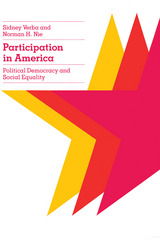
Participation in America
Political Democracy and Social Equality
Sidney Verba and Norman H. Nie
University of Chicago Press, 1987
Participation in America represents the largest study ever conducted of the ways in which citizens participate in American political life. Sidney Verba and Norman H. Nie addresses the question of who participates in the American democratic process, how, and with what effects. They distinguish four kinds of political participation: voting, campaigning, communal activity, and interaction with a public official to achieve a personal goal. Using a national sample survey and interviews with leaders in 64 communities, the authors investigate the correlation between socioeconomic status and political participation. Recipient of the Kammerer Award (1972), Participation in America provides fundamental information about the nature of American democracy.
[more]
READERS
Browse our collection.
PUBLISHERS
See BiblioVault's publisher services.
STUDENT SERVICES
Files for college accessibility offices.
UChicago Accessibility Resources
home | accessibility | search | about | contact us
BiblioVault ® 2001 - 2025
The University of Chicago Press


